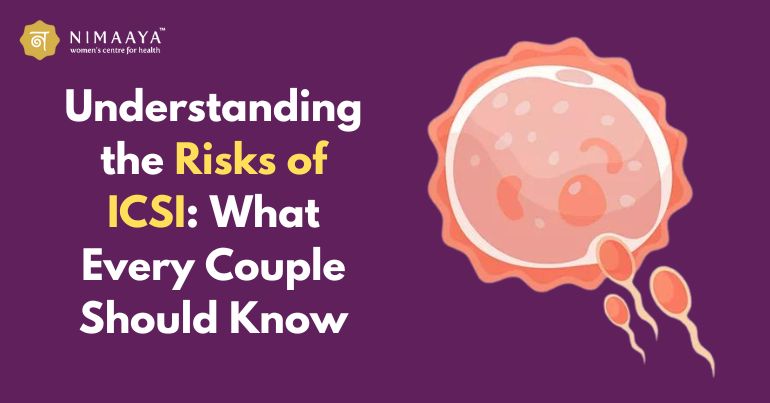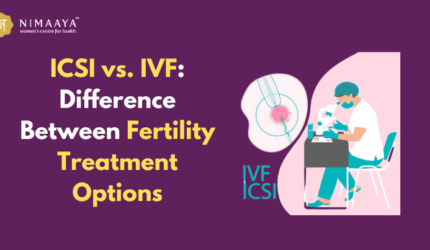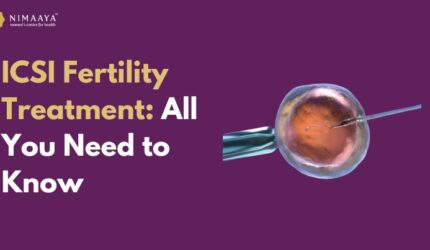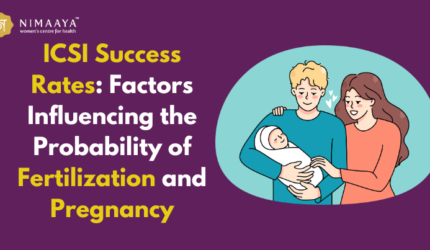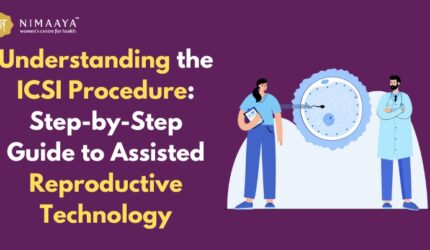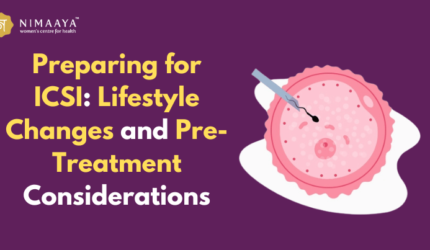Introduction
When embarking on the journey of parenthood, many couples find themselves exploring various fertility treatments to achieve their dream of having a child. Among these treatments, Intracytoplasmic Sperm Injection (ICSI) stands out as a highly effective method, especially for those facing severe male infertility. When considering fertility treatments, it’s essential to be aware of the potential risks of ICSI to make an informed decision. While ICSI has brought hope and joy to countless families, it is crucial to understand that it also carries certain risks and complications. This article delves into the risks of ICSI treatment, shedding light on what potential parents need to consider before opting for this advanced fertility procedure.
What is ICSI and its Risks?
Intracytoplasmic Sperm Injection (ICSI) is a specialized technique within In Vitro Fertilization (IVF) that involves the direct injection of a single sperm into an egg to facilitate fertilization. This method is particularly beneficial for couples dealing with severe male infertility issues, such as low sperm count, poor sperm motility, or sperm that are unable to penetrate the egg naturally.
Despite its high success rates and transformative impact on fertility treatments, ICSI carries certain risks. These include an increased likelihood of multiple pregnancies, which can lead to complications for both mother and babies, potential ICSI treatment side effects such as ovarian hyperstimulation syndrome (OHSS), and a slightly higher risk of birth defects. Therefore, couples must understand the risks of ICSI when considering it as a fertility treatment option.
Risks of ICSI Treatment
Intracytoplasmic sperm injection (ICSI) is a sophisticated technique used in conjunction with in vitro fertilization (IVF) to treat infertility, particularly in cases of male factor infertility. Although ICSI has revolutionized reproductive medicine, offering hope to many couples, it is not without its risks. Understanding these risks of ICSI is crucial for couples considering this treatment. Here, we discuss the primary risks associated with ICSI treatment.
1. Health Risks to the mother
Ovarian Hyperstimulation Syndrome (OHSS):
OHSS is a potentially serious condition that can occur when the ovaries are overstimulated during the IVF process. Symptoms range from mild (bloating and discomfort) to severe (rapid weight gain, severe abdominal pain, and shortness of breath). It may occasionally pose a threat to life.
Multiple Pregnancies:
ICSI often involves the transfer of multiple embryos to increase the chances of pregnancy, which can result in twins, triplets, or higher-order multiples. Multiple pregnancies carry higher risks for complications such as preterm birth, gestational diabetes, and preeclampsia.
Surgical Risks:
The egg retrieval process requires a minor surgical procedure that involves inserting a needle through the vaginal wall into the ovary, guided by ultrasound. As with any surgical procedure, there are risks of infection, bleeding, and damage to surrounding organs.
2. Health Risks to the Child
Birth Defects and Genetic Disorders:
Some studies suggest a slightly increased risk of birth defects and genetic disorders in children conceived through ICSI compared to those conceived naturally. This may be related to the underlying infertility issues rather than the ICSI procedure itself.
Imprinting Disorders:
There is a concern about imprinting disorders, which are rare genetic conditions caused by problems with the epigenetic marks that regulate gene expression. Conditions such as Beckwith-Wiedemann syndrome and Angelman syndrome have been observed at higher rates in ICSI-conceived children.
Developmental and Health Issues:
Some research indicates that children conceived through ICSI might face higher risks of developmental delays and health problems, although the evidence is not conclusive and further research is needed.
3. Procedure-Related Risks
Sperm Quality:
ICSI allows the use of sperm with poor motility or abnormal morphology, which might not be capable of fertilizing an egg naturally. This can raise concerns about the genetic integrity of the sperm and potential implications for the resulting embryo.
Laboratory Risks:
Handling and injecting the sperm into the egg requires a high level of technical skill and precision. There is a risk of damaging the egg during the injection process, which can result in failed fertilization or damaged embryos.
4. Psychological and Emotional Risks
Emotional Stress:
The ICSI process can be emotionally taxing for couples. The stress of the treatment, combined with the uncertainty of the outcome, can lead to anxiety, depression, and strain on the relationship.
Financial Strain:
ICSI is a costly procedure, often requiring multiple cycles to achieve a successful pregnancy. The financial burden can add to the emotional stress and impact the overall well-being of the couple.
5. Long-Term Risks
Long-Term Health of the Child:
While most children conceived through ICSI are healthy, the long-term health implications are still being studied. There is ongoing research to understand the potential long-term effects on children as they grow into adulthood.
Reproductive Health of Offspring:
There is limited but growing evidence suggesting that male children conceived through ICSI may face fertility issues similar to those of their fathers, though more research is needed to confirm this.
ICSI has enabled many couples to achieve their dream of parenthood, particularly in cases where other fertility treatments have failed. However, couples need to be fully informed of the associated risks. A thorough discussion with a fertility specialist can help in understanding these risks and making an informed decision. Continuous research and advances in technology aim to mitigate these risks and improve the safety and success rates of ICSI treatment.
Advantages and Disadvantages of ICSI
Intracytoplasmic Sperm Injection (ICSI) has transformed the landscape of assisted reproductive technology, offering hope to couples struggling with severe male infertility. While the procedure has many advantages, it is crucial to understand the potential downsides to make an informed decision. This article will explore the pros and cons of ICSI, considering the risks of ICSI fertility treatment and the ICSI risk of birth defects.
Advantages of ICSI
ICSI offers several benefits, particularly for couples facing specific infertility challenges:
Overcoming Severe Male Infertility:
One of the most significant advantages of ICSI is its effectiveness in addressing severe male infertility issues. Whether it is due to a very low sperm count, poor sperm motility, or sperm that are unable to penetrate the egg, ICSI can facilitate fertilization that might not be possible through conventional methods.
High Fertilization Rates:
ICSI has a higher fertilization rate compared to traditional IVF. By directly injecting a single sperm into an egg, ICSI ensures that sperm-related issues do not impede fertilization, increasing the chances of successful embryo development.
Solution for Previous IVF Failures:
For couples who have experienced failed IVF attempts, ICSI can be a valuable alternative. It can bypass certain fertilization barriers that might have contributed to previous failures, providing a renewed opportunity for pregnancy.
Suitable for Azoospermia:
ICSI is particularly useful for men with azoospermia, a condition where no sperm is present in the ejaculate. Sperm retrieved surgically from the testes can be used in ICSI, offering the possibility of biological parenthood.
Single Sperm Utilization:
Even in cases where sperm count is extremely low, ICSI can be performed as it requires only one viable sperm per egg. This makes it a practical option even in the most challenging cases of male infertility.
Disadvantages of ICSI
Despite its advantages, ICSI comes with several disadvantages and potential risks of ICSI that should be carefully considered:
ICSI Risk of Birth Defects:
Studies suggest a slightly increased risk of birth defects in babies conceived through ICSI compared to natural conception and conventional IVF. These risks of ICSI might be attributed to the underlying infertility issues rather than the ICSI procedure itself, but they remain a concern for prospective parents.
Potential for Multiple Pregnancies:
As with other forms of assisted reproductive technology, ICSI carries the risk of multiple pregnancies if multiple embryos are transferred. Multiple pregnancies are associated with higher risks of complications such as preterm birth, low birth weight, and health issues for both the mother and babies.
ICSI Treatment Side Effects:
Women undergoing ICSI may experience side effects related to the procedure, including ovarian hyperstimulation syndrome (OHSS), which can cause swollen and painful ovaries. Additionally, the egg retrieval process carries risks of ICSI such as bleeding, infection, or damage to surrounding organs.
Emotional and Psychological Impact:
The emotional and psychological impact of ICSI should not be underestimated. The stress of the treatment process, coupled with the uncertainty of the outcome, can be challenging for couples. Emotional support and counseling are often necessary to navigate this journey.
Financial Considerations:
ICSI is a costly procedure, often more expensive than conventional IVF due to the specialized techniques involved. The financial burden can be significant, especially when multiple cycles are required. Insurance coverage for ICSI varies, and couples must consider the financial implications.
Ethical and Moral Considerations:
The manipulation of gametes and embryos in ICSI raises ethical and moral questions for some individuals and couples. Concerns about the long-term health and welfare of ICSI-conceived children also contribute to the ethical debate surrounding the procedure.
The pros and cons of ICSI highlight the need for careful consideration and informed decision-making. While ICSI offers a promising solution for couples facing severe male infertility, it is essential to be aware of the potential risks of ICSI fertility treatment, including the ICSI risk of birth defects. By weighing the advantages and disadvantages, and seeking appropriate medical and emotional support, couples can navigate their fertility journey with greater confidence and preparedness.
Also Read: ICSI vs IVF: Difference Between Fertility Treatment Options
Important Considerations for ICSI
When considering ICSI, prospective parents should keep the following factors in mind:
Thorough Medical Evaluation:
A comprehensive medical evaluation is crucial to determine the underlying cause of infertility and the suitability of ICSI. This includes assessing both partners’ reproductive health and discussing any potential risks of ICSI or complications specific to their situation.
Selecting the Right Clinic:
Choosing a reputable fertility clinic with experienced professionals is vital. Centers like Nimaaya IVF Center offer specialized care and advanced technology, ensuring the best possible outcomes for their patients.
Emotional and Psychological Support:
Undergoing risks icsi fertility treatment can be an emotional rollercoaster. Seeking support from counselors, support groups, or therapists can help couples navigate the psychological challenges associated with ICSI.
Financial Planning:
Given the high costs associated with ICSI, couples should plan their finances carefully. This includes understanding the cost of the procedure, medication, and any additional treatments or consultations that may be required.
Understanding Success Rates:
While ICSI has high success rates, it is essential to have realistic expectations. Success rates can vary based on factors such as age, underlying infertility issues, and overall health. Discussing these rates with the fertility specialist can provide a clearer picture of what to expect.
Conclusion:-
ICSI has undeniably transformed the landscape of assisted reproductive technology, offering hope to countless couples facing infertility challenges. However, it is crucial to understand the potential risks of ICSI and complications associated with this treatment. From ovarian hyperstimulation syndrome to the risks of ICSI pregnancy and the slight increase in the risk of birth defects, prospective parents must be well-informed and prepared for the journey ahead.
By carefully considering the pros and cons of ICSI, undergoing thorough medical evaluations, and seeking emotional and financial support, couples can navigate the complexities of this treatment with greater confidence. With the expertise of specialized centers like Nimaaya IVF Center, the dream of parenthood can become a reality, even in the face of fertility challenges.

